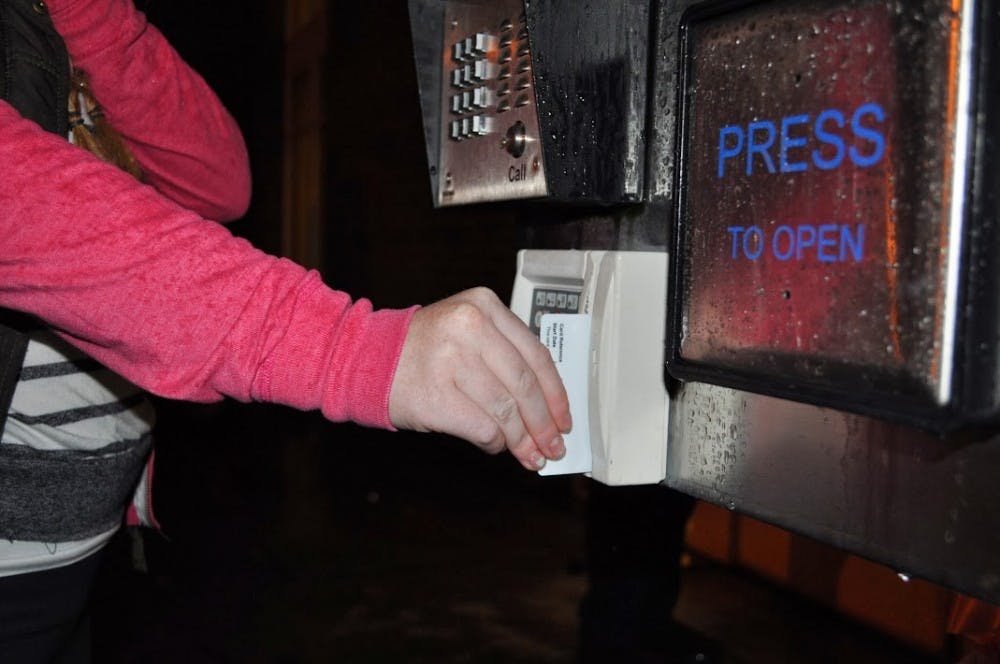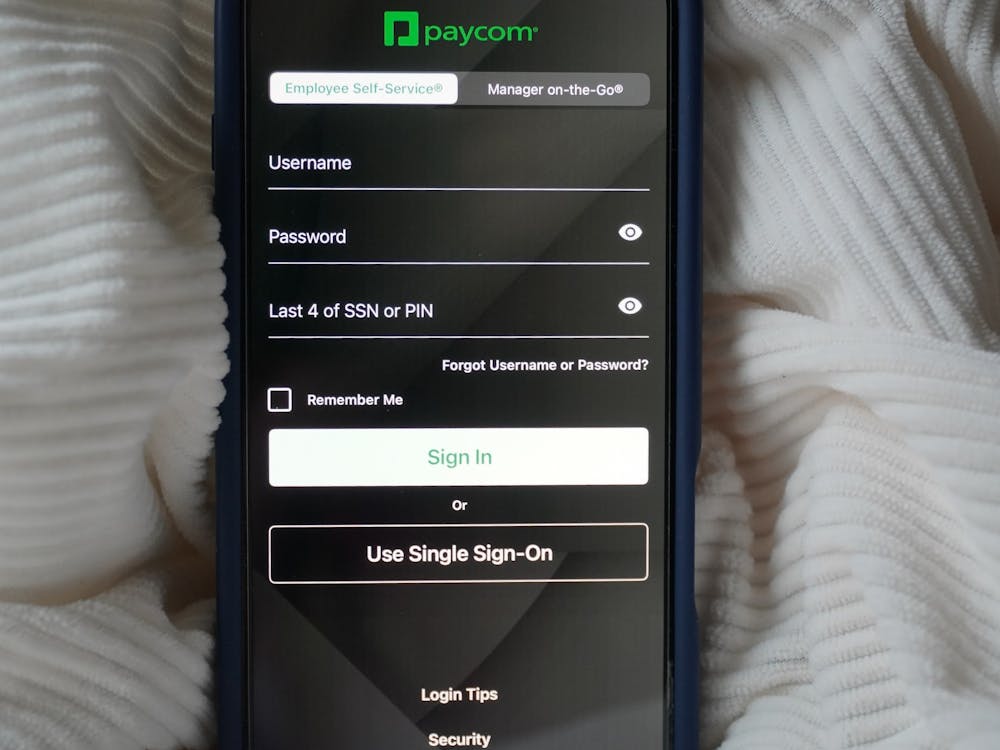A new ASUP resolution proposes granting ID card swipe-access to campus residence halls during visitation hours in an effort to include off-campus students in the UP community.
Spearheaded by ASUP senators junior Andrew Bosomworth and sophomore Samantha van den Berg, Resolution 12-13 is fueled by a concern that restricted access creates barriers.
“Some of our constituents expressed to us that they don’t feel included in dorm life,” Bosomworth said. “We feel we can bring the entire UP community closer together with better access.”
Beginning this semester, residence hall receptionists were replaced by community assistants who don’t monitor hall access as part of their duties. Residence halls locked down as a result, only accessible through a student ID card swipe access system.
The current policy grants on-campus students admission to the front doors of all dorms during intervisitation hours. Yet even on-campus students can only swipe into the living areas of their own halls.
Off-campus students have no entrance privilege to dorms, except when invited in or through “piggybacking,” bypassing swipe access by entering directly behind on-campus students.
If passed, Resolution 12-13 would give off-campus students the same intervisitation rights as on-campus students.
While the resolution garnered support from on-campus ASUP senators, it has encountered resistance from Residence Life and Public Safety.
Alex Hermanny, associate director for housing, says the current access regulations are a compromise between access and safety.
“We want students to be able to see their friends, but we have to balance that with safety and security too,” Hermanny said. “We had to find a place to draw the line, and make sure we weren’t giving card access to too many people.”
Hermanny believes limiting dorm access to on-campus students serves as an essential security measure and helps foster a tighter sense of on-campus community.
“This mission of Residence Life at its heart is to build Christian communities on campus,” he said. “Part of doing that is building a sense of home in each of the halls.”
Hermany added that off-campus students have “made a choice to disengage from the community on some level.”
While Residence Life views off-campus students as part of the UP community, by moving off campus, students lose privileges granted to those who stay with their hall families.
“We want to welcome them back, but during the times when there is someone to welcome them in,” Hermanny said.
Corrado Hall resident assistant Ian Coe thinks denying off-campus students access to residence halls does little to foster community.
“I think the idea of Christian community extends to the whole campus,” he said. “Barring people access to the dorms – and to their friends – hinders community building.”
Along with creating more vibrant residence hall communities, both Residence Life and Public Safety cited security reasons for limiting off-campus access to the halls.
Michael McNerney, administrator of card access on campus for Public Safety, said limiting off-campus student access helps control who enters the halls uninvited.
“It’s really not a question of keeping students out, it’s making sure that access doesn’t compromise security,” McNerney said.
One concern is preventing non-traditional students who may not fully be a part of UP’s community from entering dorms, according to McNerney. Another is keeping track of student IDs.
Although Public Safety doesn’t track whether off-campus students lose their IDs more often than on-campus students, McNerney said it’s assumed that on-campus students will report the loss swiftly. An off-campus student – whose life is less tied to their ID – might delay replacing their card.
If Resolution 12-13 is approved, off-campus students will have intervisitation swipe access, and unreported ID loss may pose a security threat.
Yet some students like junior Hanna Herrin – who moved off campus this semester after two years in Corrado Hall – feel being locked out of dorms is akin to being locked out of the community.
“It cuts us off from a part of campus,” Herrin said. “Part of the reason I came to UP was because of the community and values. I came in expecting to be part of this community.”
For Herrin, access to residence hall means access to friends, study groups and work space. Yet she agrees that she might not be as quick to report the loss of her student ID as an on-campus student.
Resolution 12-13 has been tabled as ASUP senators reach out to their constituents for feedback. If ASUP votes to pass the resolution, it will be passed to University President Fr. Bill Beauchamp who can approve, deny or pass on the decision to another department.
Both Bosomworth and van den Berg are confident of Resolution 12-13’s success.
“We’re very, very hopeful,” Bosomworth said. “We represent the students of the University of Portland, and this resolution is something students want to see happen.”








